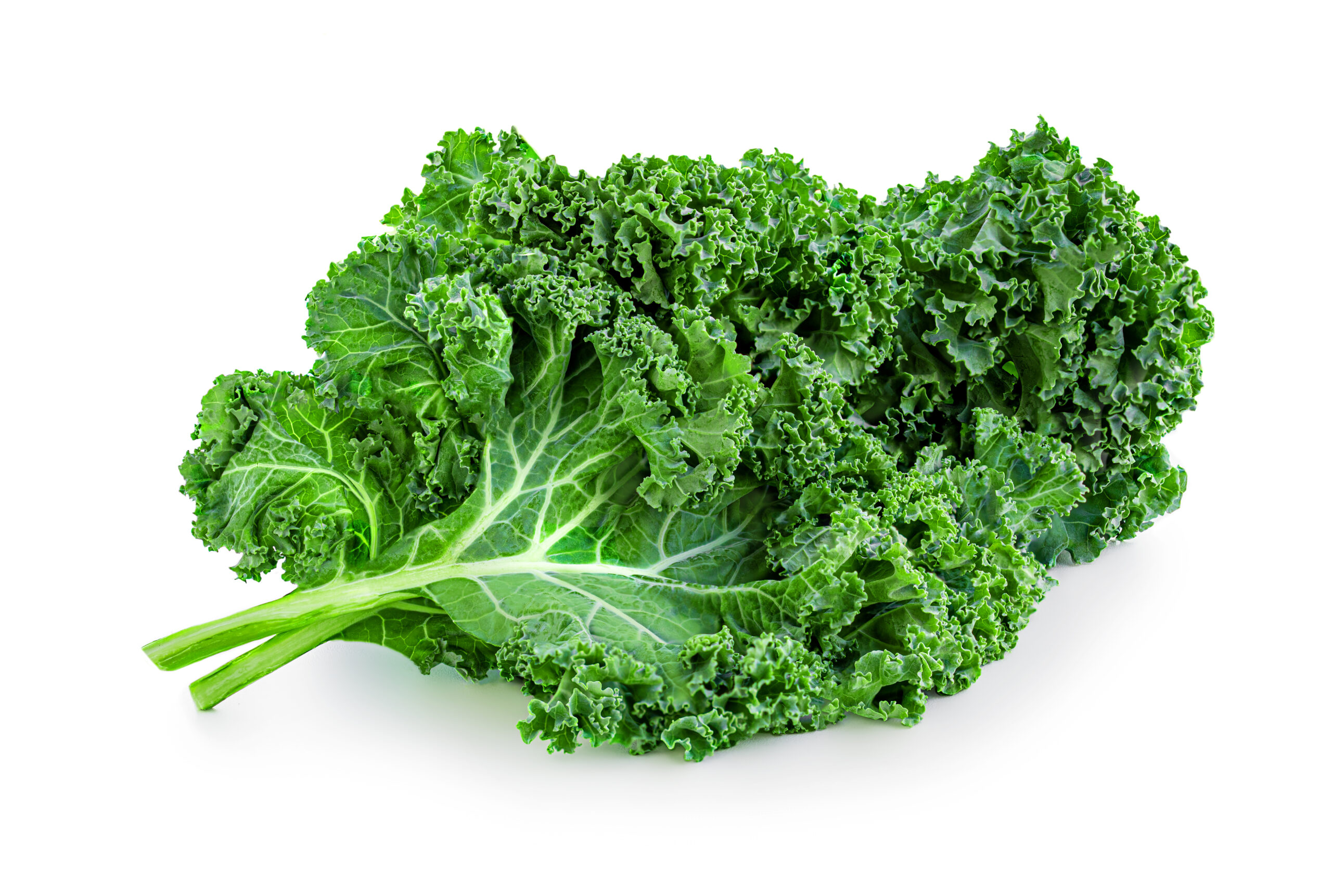In the world of nutrition and wellness, certain foods stand out as nutritional powerhouses, and kale undoubtedly takes a prime spot among them. Often referred to as the “queen of greens,” kale is celebrated for its exceptional nutrient density and numerous health benefits. This leafy green has garnered immense popularity in recent years, becoming a staple in health-conscious diets worldwide. In this comprehensive article, we will explore the extensive benefits of kale and uncover why it is hailed as the ultimate superfood for health and vitality.
What is Kale?
Kale, scientifically known as Brassica oleracea var. acephala, belongs to the cruciferous vegetable family, which also includes broccoli, cauliflower, and Brussels sprouts. It is characterized by its dark green, curly leaves and is available in various varieties, including curly kale, Lacinato kale (also known as dinosaur kale), and red kale. Kale is celebrated for its impressive nutrient content, making it a staple in a wide range of dishes, from salads and smoothies to soups and stir-fries.
Nutrient Profile of Kale
Kale stands out as a superfood due to its exceptional nutrient density. It is a rich source of various essential vitamins, minerals, antioxidants, and phytonutrients, including:
- Vitamins: Kale is particularly abundant in vitamins, including vitamin A (in the form of beta-carotene), vitamin C, vitamin K1, vitamin B6, and vitamin E. These vitamins play vital roles in immune function, bone health, and overall well-being.
- Minerals: Kale is rich in essential minerals such as calcium, magnesium, potassium, and phosphorus, which are crucial for maintaining healthy bones, muscles, and various bodily functions.
- Antioxidants: Kale is packed with antioxidants, including quercetin, kaempferol, and flavonoids, which help combat oxidative stress and protect the body from free radical damage.
- Phytonutrients: Kale contains phytonutrients like sulforaphane and indole-3-carbinol, known for their potential cancer-fighting properties and hormone regulation.
- Dietary Fiber: Kale is an excellent source of dietary fiber, promoting digestive health, regular bowel movements, and a feeling of fullness.
- Omega-3 Fatty Acids: Kale contains small amounts of alpha-linolenic acid (ALA), a type of omega-3 fatty acid that contributes to heart health and inflammation control.
Health Benefits of Kale
Here are some of the many health benefits of Kale…
Rich in Antioxidants
Kale’s impressive antioxidant content makes it a formidable ally in the fight against oxidative stress. Antioxidants help protect cells and tissues from damage, reducing the risk of chronic diseases such as heart disease and cancer.
Anti-Inflammatory Properties
Kale contains compounds like quercetin and kaempferol, which have potent anti-inflammatory effects. Regular consumption of kale may help reduce chronic inflammation, a common factor in many diseases.
Heart Health
Kale has several heart-healthy attributes. Its high fiber content helps lower cholesterol levels, while its potassium content helps regulate blood pressure. Additionally, kale’s antioxidants can reduce the risk of heart disease by preventing the oxidation of LDL (bad) cholesterol.
Bone Health
Kale is an exceptional source of vitamin K1, which is essential for bone health as it helps with calcium absorption and bone mineralization. A diet rich in vitamin K1 can contribute to stronger bones and reduced fracture risk.
Eye Health
The high levels of beta-carotene in kale contribute to better eye health and vision. Beta-carotene is a precursor to vitamin A, which is essential for maintaining healthy eyes.
Weight Management
Kale is low in calories and high in fiber, making it an excellent choice for weight management. It promotes a feeling of fullness and can help control calorie intake.
Digestive Health
The fiber content in kale supports digestive health by preventing constipation and promoting regular bowel movements. A healthy gut is essential for overall well-being.
Detoxification
Kale contains sulfur compounds that support the liver’s detoxification processes, helping to remove harmful toxins and chemicals from the body.
Skin Health
The combination of vitamins A, C, and K, along with antioxidants, promotes healthy skin by reducing signs of aging and protecting against skin damage.
Varieties of Kale and Their Benefits
Kale comes in various forms, each with its unique flavor and nutrient profile. Here are some common varieties of kale and their distinct benefits:
- Curly Kale: This is the most common variety, with tightly curled leaves. It’s rich in antioxidants and vitamin K.
- Lacinato Kale (Dinosaur Kale): Lacinato kale has long, flat, dark green leaves with a slightly sweeter taste. It’s a great source of fiber and vitamin A.
- Red Kale: Red kale has reddish-purple leaves and is known for its high vitamin C content, making it a potent antioxidant.
- Baby Kale: Baby kale is tender and milder in flavor than mature kale. It’s an excellent choice for salads and smoothies.
- Russian Kale: Russian kale has flat, fringed leaves with a mild, sweet flavor. It’s rich in nutrients and has a pleasant taste.
Incorporating Kale Into Your Diet
Kale can be a versatile addition to your diet and can be enjoyed in various ways:
- Kale Salad: Create a nutrient-packed salad by massaging kale leaves with a bit of olive oil and adding your favorite toppings like nuts, seeds, and a flavorful dressing.
- Smoothies: Add a handful of kale leaves to your morning smoothie for an extra boost of nutrients.
- Kale Chips: Bake kale leaves with olive oil and your choice of seasoning to make crispy kale chips.
- Soups and Stews: Kale can be chopped and added to soups and stews, providing a hearty, nutritious addition.
- Stir-Fries: Include kale in your stir-fry dishes for added flavor and nutrition.
- Kale Pesto: Create a unique pesto sauce by blending kale with garlic, olive oil, nuts, and Parmesan cheese.
- Kale Wraps: Use large kale leaves as a wrap for your favorite fillings, such as hummus, vegetables, and protein.
Kale Benefits Conclusion
Kale’s reputation as the ultimate superfood is well-deserved, thanks to its exceptional nutrient profile and a wide range of health benefits. Whether you are looking to boost your immune system, support heart health, promote bone health, or manage your weight, kale can play a pivotal role in your journey towards better health and vitality.
However, as with any dietary change, it’s essential to incorporate kale into your diet mindfully and consult with a healthcare professional if you have specific health concerns or conditions. When used wisely, kale can be a powerful ally in your pursuit of a healthier and more energetic you, unlocking the full potential of this remarkable leafy green.
Read about the best superfood supplements on the market here: Top Greens Supplements
REFERENCES
- Mayo Clinic
- WebMD
- Healthline
- Improving the Health-Benefits of Kales (Brassica oleracea L. var. acephala DC) through the Application of Controlled Abiotic Stresses: A Review
- Kale Attenuates Inflammation and Modulates Gut Microbial Composition and Function in C57BL/6J Mice with Diet-Induced Obesity
- Kale juice improves coronary artery disease risk factors in hypercholesterolemic men
- Composition and antioxidant activity of kale (Brassica oleracea L. var. acephala) raw and cooked
I’m not just a supplement analyst. I’m an extremely qualified one! I am a Certified Nutrition Coach (CNC) and actually received my certification directly from the National Academy of Sports Medicine. I am also a Nutrition & Wellness Consultant, certified by the American Fitness Professionals Association (AFPA).



